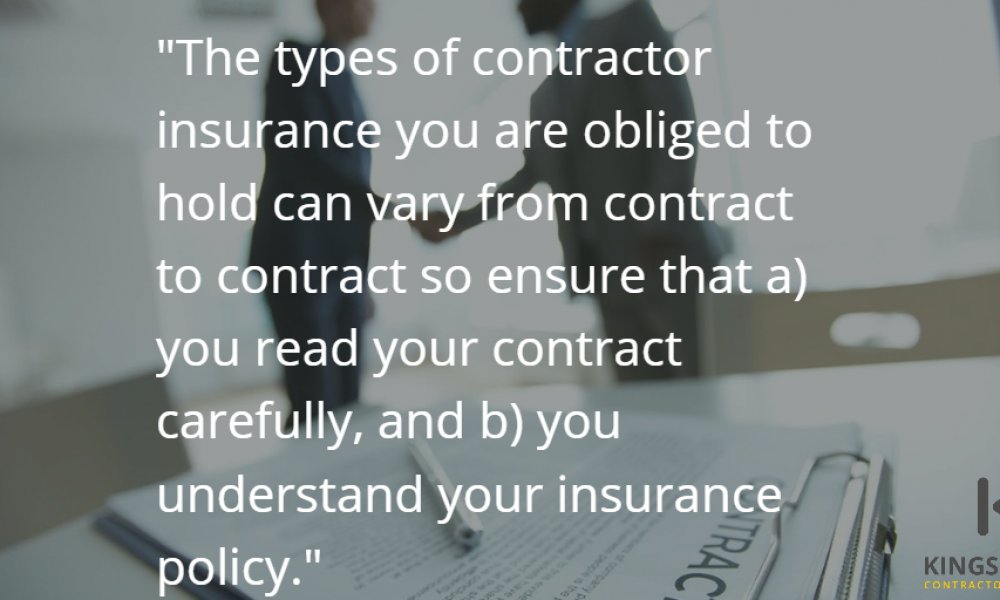Do UK contractors need to hold public liability insurance?
If you are new to contracting, you’re probably still trying to fathom which insurances you actually need and which are…
Whether you’re a veteran contractor or a newbie, whether you’re in IT or engineering, you’ve almost certainly discovered by now…

Whether you’re a veteran contractor or a newbie, whether you’re in IT or engineering, you’ve almost certainly discovered by now that having contractor insurance is often a contractual obligation when it comes to clients and/or agencies. This means that before you sign on the dotted line, you must have insurance in place or else you could find yourself in breach of contract.
The types of contractor insurance you are obliged to hold can vary from contract to contract so ensure that:
Commonly, you will be asked to have at the very least professional indemnity insurance, public liability insurance and employers’ liability insurance cover although this can vary so make sure you check what you require against what you actually have.
Bear in mind, too, that some clients or projects may require that you hold specific levels of cover so, again, double check your policy and request to amend it if necessary.
Some clients or agencies will ask for proof of insurance (usually your insurance documents) to ensure you meet your contractual requirements before they allow you to sign your contract. In these cases you are generally safe because someone will be double checking everything for you, although to save time it’s worth checking everything yourself beforehand.
However, some clients or agencies won’t specifically make you aware of this requirement or ask you for proof. It will simply be there in your contract and it will be assumed that you have read and complied before you sign.
In these cases it’s vital that you read your contract thoroughly and cross-check any requirements with your insurance documentation.
In the first instance, if you fail to meet contractual requirements with regards to contractor insurance, you may simply find it is difficult to get work. It would be unlikely that any agencies would take you on and you would not be able to sign contracts with clients if you do not meet their stipulations.
If, however, you have signed a contract and then have let your insurance expire, or didn’t have the correct insurance in the first place, you could find yourself in breach of contract. This can result in, at the very least, your dismissal from the project but you could also find yourself in hot water legally and financially.
Should you make a mistake on a project and your client seeks compensation, and if you don’t have the right type or level of cover, then you will have to pay the money yourself. If you are unable to, you could find yourself losing your business or even being declared bankrupt.
If you already have a policy with Kingsbridge, or if you are new to us, we can help you check if your policy covers the requirements of your contract which, thanks to our comprehensive cover, it should.
Call us today on 01242 808740.